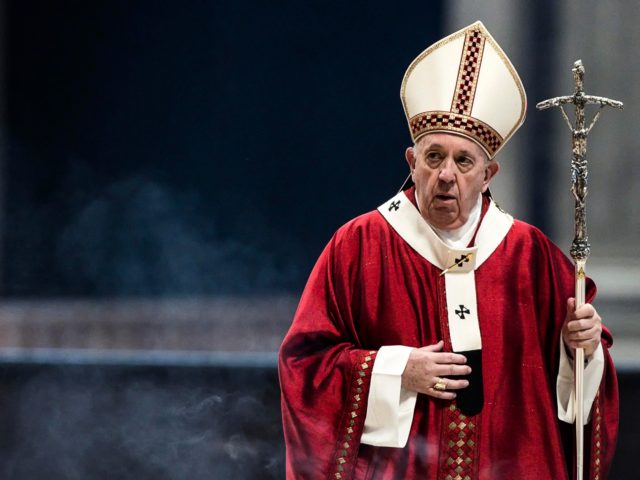ROME — Pope Francis said Wednesday unequal wealth among nations and individuals reveals a sick economy, “an injustice that cries out to heaven.”
The coronavirus pandemic “has exposed and aggravated social problems, above all that of inequality,” the pontiff told those following his live-streamed remarks delivered from Library of the Apostolic Palace in the Vatican.
“Some people can work from home, while this is impossible for many others,” he said. “Certain children, notwithstanding the difficulties involved, can continue to receive an academic education, while this has been abruptly interrupted for many, many others.”
“Some powerful nations can issue money to deal with the crisis, while this would mean mortgaging the future for others,” he added.
These economic differences are pathological, the pope suggested, signs of a “sick economy.”
“These symptoms of inequality reveal a social illness; it is a virus that comes from a sick economy,” Francis said. “And we must say it simply: the economy is sick. It has become ill. It is sick.”
This sickness “is the fruit of unequal economic growth – this is the illness: the fruit of unequal economic growth – that disregards fundamental human values,” he said.
“In today’s world, a few rich people possess more than all the rest of humanity. I will repeat this so that it makes us think: a few rich people, a small group, possess more than all the rest of humanity. This is pure statistics. This is an injustice that cries out to heaven!” he said.
The pope went on to suggest that such unequal economic growth is the fruit of greed and demands rectification.
“When the obsession to possess and dominate excludes millions of persons from having primary goods,” he said, “when economic and technological inequality are such that the social fabric is torn; and when dependence on unlimited material progress threatens our common home, then we cannot stand by and watch.”
It is unclear from the pope’s words how he believes equal economic growth among nations and individuals should be achieved, or whether it is merely a question of redistribution of all the world’s wealth equally among individuals.
Catholic social teaching has, however, consistently recognized the natural differences among persons and nations and insisted that economic homogeneity is an unworkable utopia.
In the first “social encyclical,” Pope Leo XIII’s 1891 text Rerum Novarum, the pontiff called for a healthy realism, bearing with “the condition of things inherent in human affairs” for “it is impossible to reduce civil society to one dead level,” as opposed to the Socialists’ utopian efforts toward perfect economic equality, since “all striving against nature is in vain.”
Leo called to mind that manifold differences naturally exist among persons: “people differ in capacity, skill, health, strength; and unequal fortune is a necessary result of unequal condition.”
At the same time, Leo insisted that these natural inequalities are not necessarily evil, either for individuals or for the larger community. In fact, he wrote, social and public life “can only be maintained by means of various kinds of capacity for business and the playing of many parts; and each man, as a rule, chooses the part which suits his own peculiar domestic condition.”
While the Catholic Church teaches that there are, indeed, “sinful inequalities that affect millions of men and women,” which stand “in open contradiction of the Gospel,” it also recognizes that not all inequalities are evil and the campaign to impose perfect economic equality would cause more harm than it would alleviate.

COMMENTS
Please let us know if you're having issues with commenting.